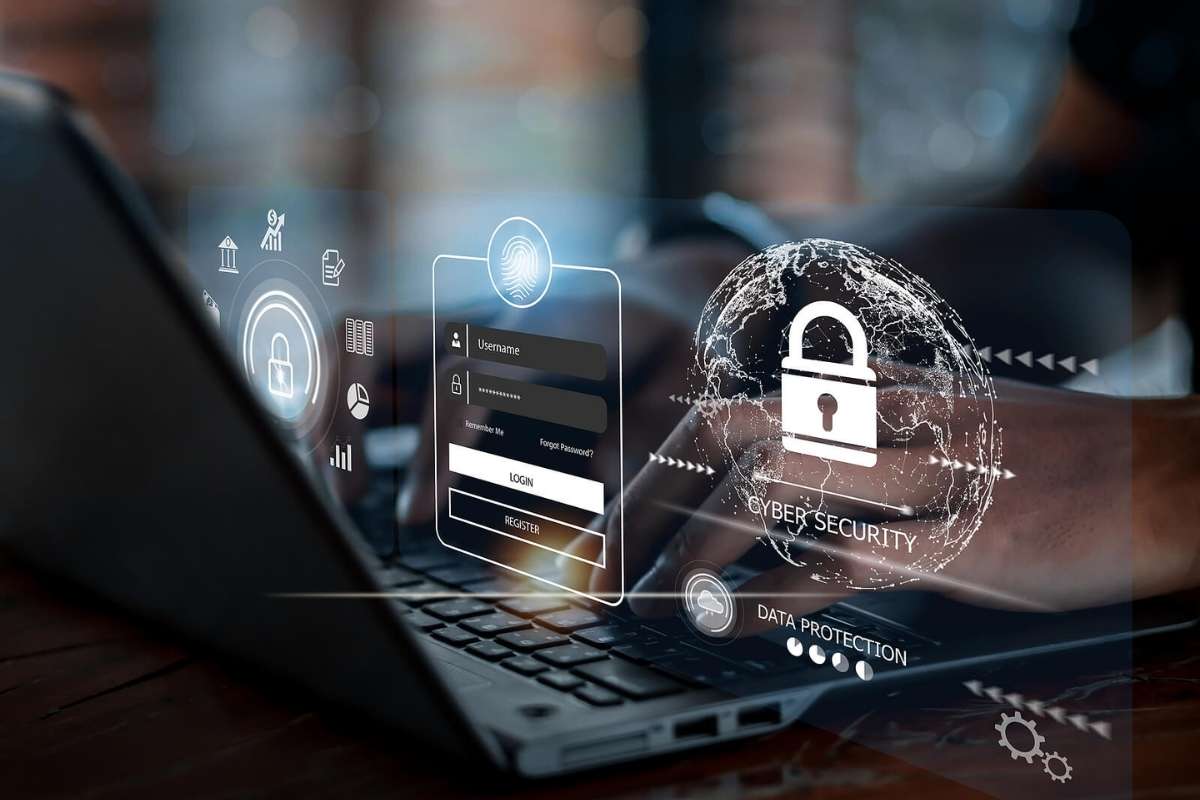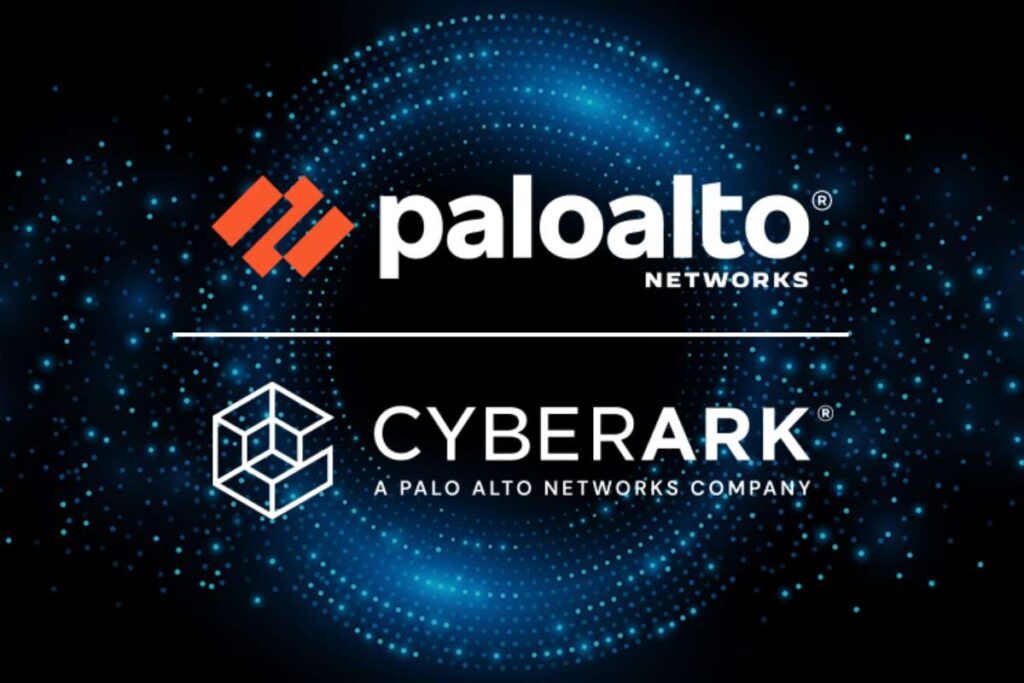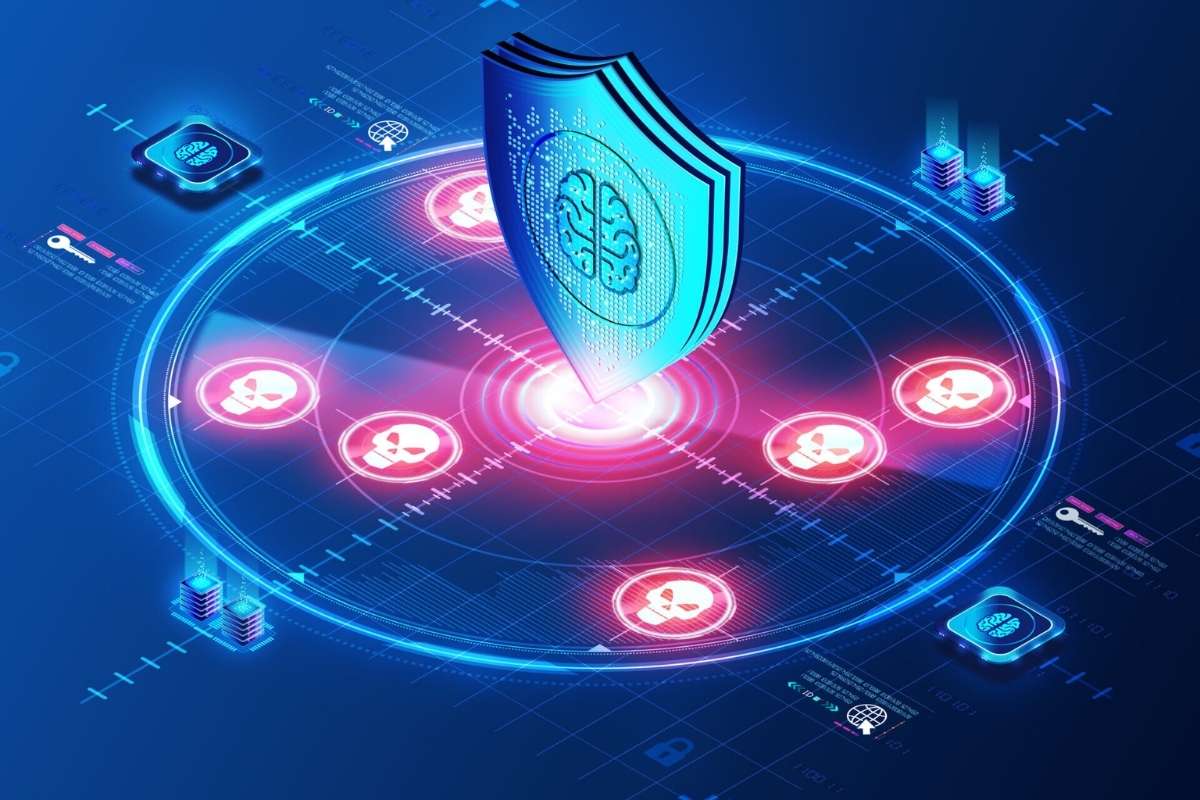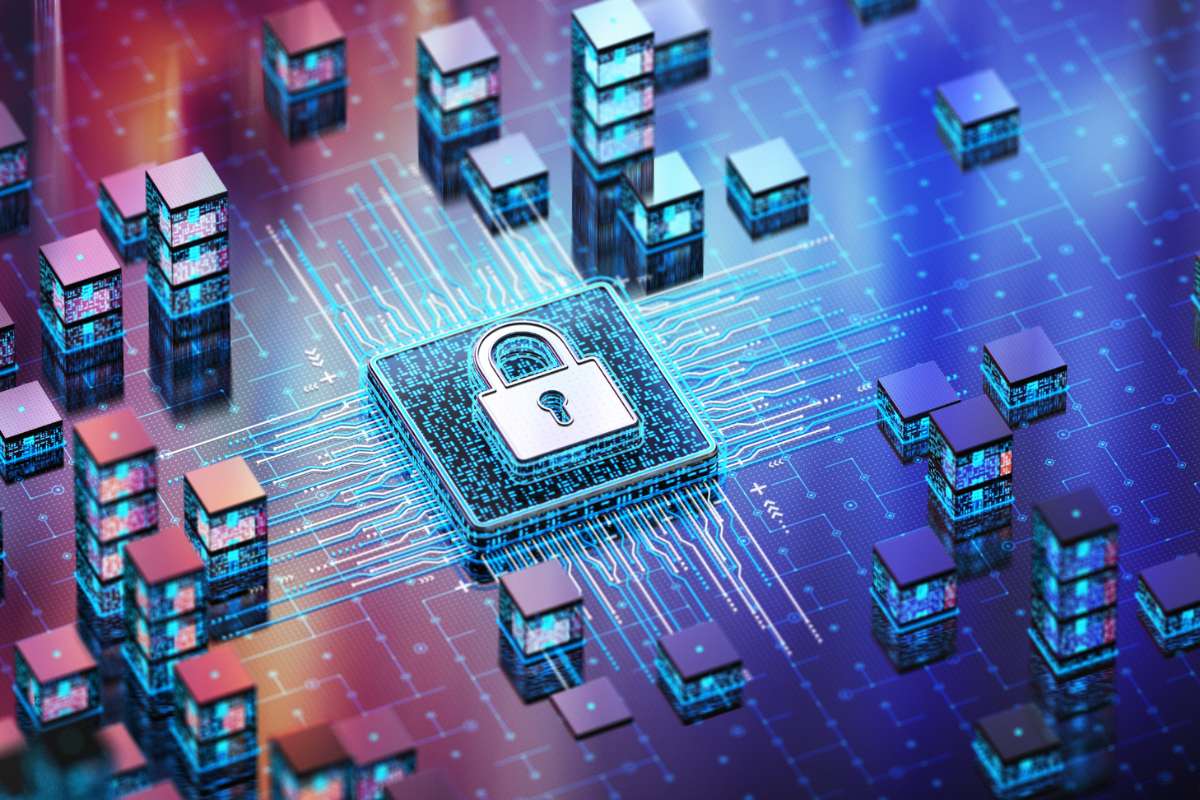When my friend started her job in tech, she kept mixing up network security and cybersecurity. One day, I explained it simply that “Network security is like locking your home, and cybersecurity is like protecting everything inside it.” That example cleared up her confusion completely. Her own experience made her confident about the topic, Network Security vs. Cybersecurity. She finally got the answer and started helping others understand it, too. She tells people how her confusion turned into clear knowledge about Network Security vs. Cyber Security.
Network Security and Cybersecurity may sound similar, but they serve different purposes and operate on different levels. In this article, we will explore the types, the tools used, and even how the dark web intersects with these two important areas.
Different Types of Network Security and Cyber Security
Here are the different types of Network Security vs. Cybersecurity to help businesses decide where to focus their time and money.
Types of Network Security
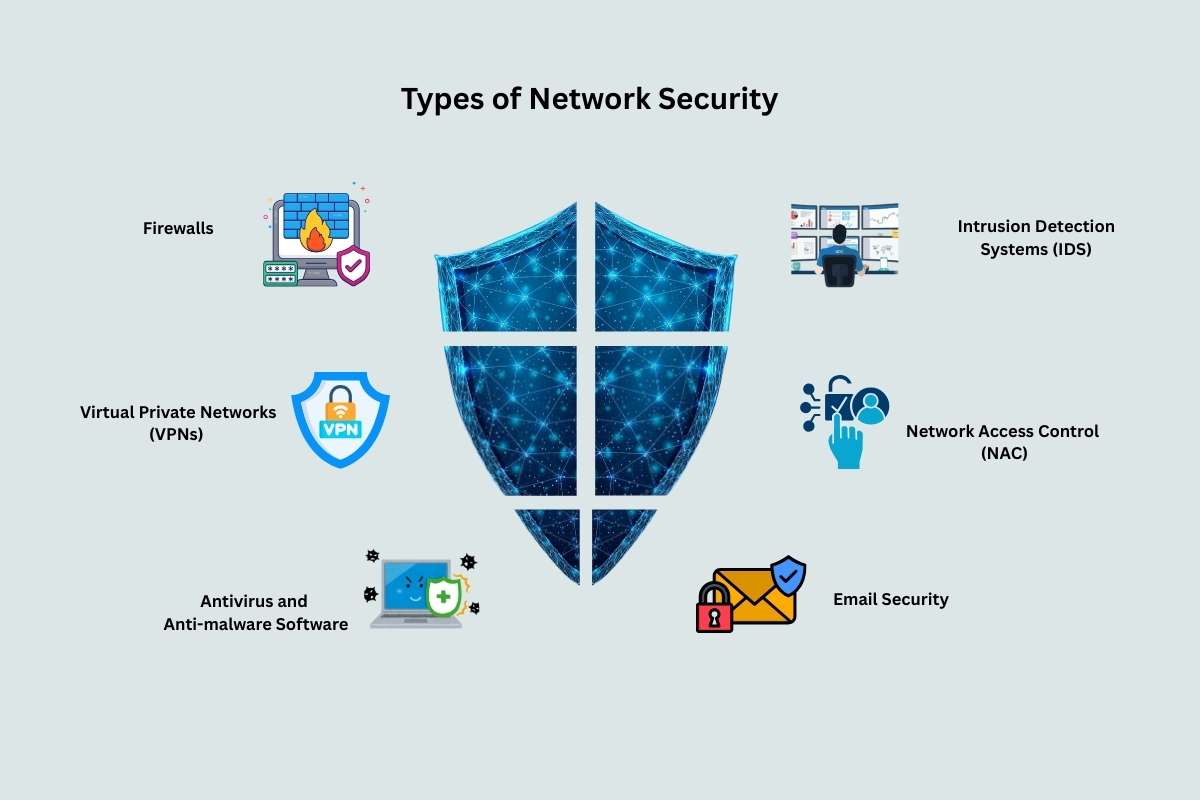
- Firewalls – Control incoming and outgoing network traffic based on predetermined security rules.
- Intrusion Detection Systems (IDS) – Monitor network traffic for suspicious activity.
- Virtual Private Networks (VPNs) – Encrypt data transmissions over the internet for secure privacy.
- Network Access Control (NAC) – Restricts unauthorized users from accessing a network.
- Antivirus and Anti-malware Software – Detects and removes malicious software from networked systems.
- Email Security – Protects emails from phishing, spam, and malicious attachments.
Types of Cyber Security
- Application Security – Protects software applications from vulnerabilities and attacks.
- Information Security – Protects the integrity and privacy of data.
- Cloud Security – Secures data, applications, and infrastructure in the cloud.
- Endpoint Security – Protects devices like laptops, mobiles, and desktops.
- Identity and Access Management (IAM) – Manages user roles and access to critical systems and data.
- Operational Security (OpSec) – Focuses on securing internal processes and workflows.
Top 5 Tools in Network Security and Cyber Security

Technology plays an important role in maintaining secure digital ecosystems. Here are the top tools used in both domains:
| Top Network Security Tools | Top Cyber Security Tools |
| Wireshark – A popular network protocol analyzer. | Norton 360 – Offers all-around protection, including antivirus, VPN, and password management. |
| Snort – Detects and stops attacks by checking traffic coming into your network. | Bitdefender – Stops viruses and other threats with strong real-time protection. |
| SolarWinds Network Configuration Manager – Helps manage and secure network devices like routers and switches. | Kaspersky Security Cloud – AI-powered cyber protection. |
| pfSense – A free and powerful firewall/router software. | Metasploit – A penetration testing tool used by experts to test for weaknesses in systems. |
| Cisco Security Manager – Helps manage all your Cisco security tools in one place. | Splunk – Collects and analyzes data to find and fix security problems fast. |
Network Security vs. Cybersecurity: The Role of the Dark Web
The Dark Web is a hidden part of the internet that we cannot find using regular search engines. It gives people privacy, but it is also used for illegal things like selling stolen data, viruses, and hacking services.
How the Dark Web Impacts Network Security?
Hackers look for weak networks to break into private systems. Once they get in, they can steal important data and sell it on the dark web. On hidden websites, people also share and sell tools like sniffers and botnets that help with these attacks. That’s why it is so important to keep your network safe and secure.
Cybersecurity’s Role in the Dark Web
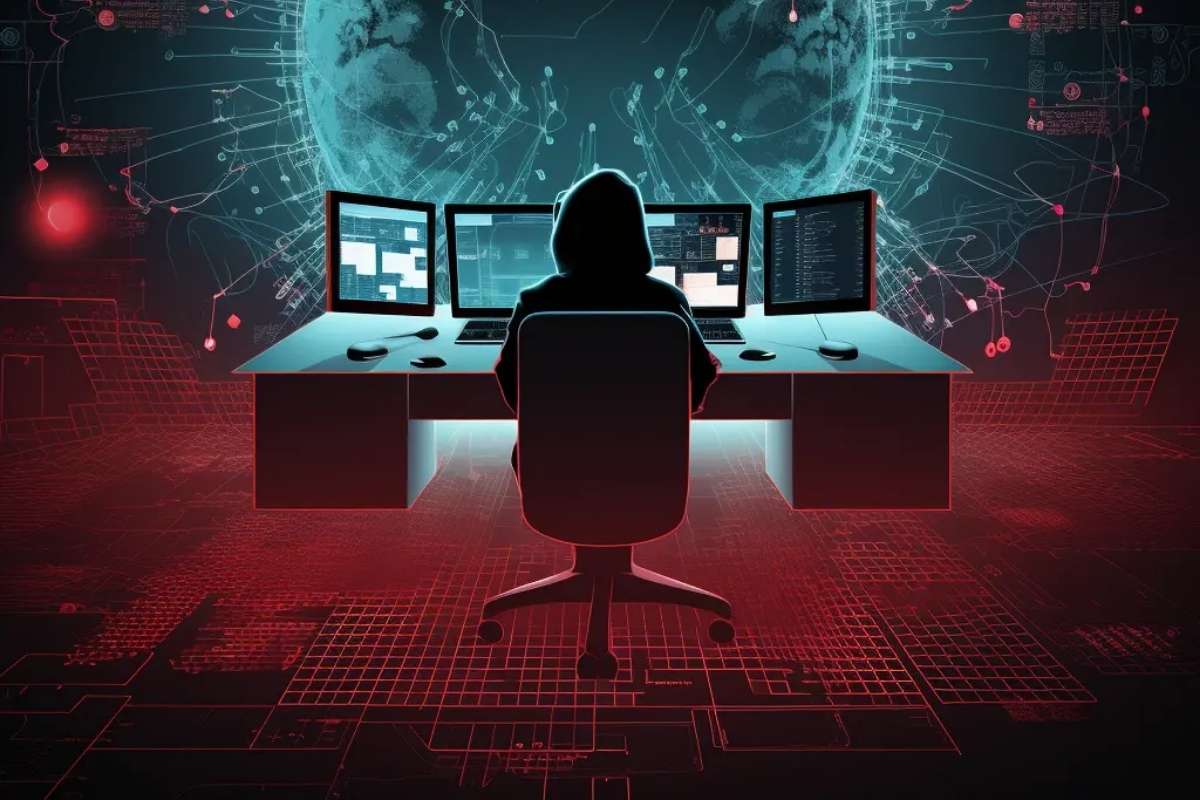
Cybersecurity experts use special tools to watch the dark web for things like stolen passwords or leaked company information. This helps businesses fix weak spots and teach their staff about new dangers. When we look at Network Security vs. Cybersecurity, the dark web shows how cybersecurity works more proactively, meaning trying to stop problems before they happen, while network security is more reactive, which means focused on blocking or fixing problems as they come up.
also Read :- Mastering the Dark Web Browser: A Comprehensive Guide to Safe and Effective Navigation
Future Trends in Network Security vs. Cybersecurity
As technology keeps changing, the way we protect our networks and data also needs to improve. Here are some simple future trends in both Network Security vs. Cyber Security:
1. Artificial Intelligence and Machine Learning
AI is playing a bigger role in both network and cybersecurity. Computers will learn to spot and stop threats faster by studying patterns and behaviors.
2. Zero Trust Security
No one is trusted automatically, not even people inside the company. Everyone must prove they are safe before getting access.
3. Blockchain for Security
Blockchain helps keep records safe and makes it hard for hackers to change or fake data.
4. Faster Incident Response
Security systems will react more quickly and automatically to attacks, helping stop them before they do damage.
5. Dark Web Monitoring Tools
Advanced tools are being developed to crawl the dark web in real time, helping organizations anticipate attacks and tighten security.
Conclusion
When it comes to Network Security vs. Cybersecurity, Network security protects your connections and keeps your devices safe. Cybersecurity goes beyond that and guards systems, users, and data from many online threats. If you run a business or just use the internet daily, knowing the difference helps you stay safe. By using the right tools and staying alert, you can protect yourself better. Together, they create a strong shield for our digital world.

